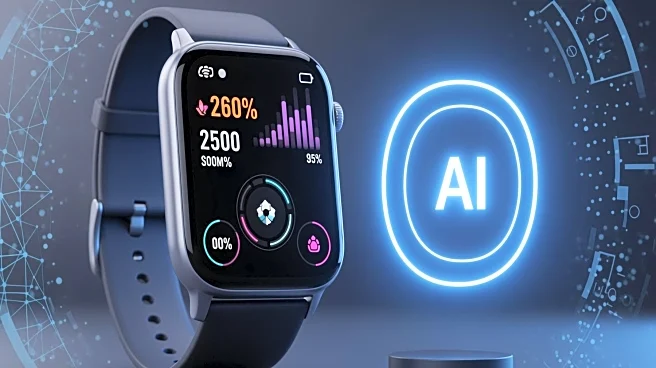What's Happening?
Fitbit is introducing a new AI-powered health coach as part of a major app overhaul, set to debut for premium subscribers in the U.S. on Android devices. The update, which was initially announced in August, will roll out to iOS users later this year.
The AI health coach is designed to provide personalized fitness guidance based on user input and Fitbit data, creating weekly workout plans tailored to individual goals and available equipment. The app's redesign aims to integrate AI features more seamlessly, offering an opt-in experience that allows users to switch between the new and existing app interfaces. The health coach will also address medical queries, with a framework developed in consultation with clinicians and fitness experts to ensure safety and accuracy.
Why It's Important?
The introduction of an AI health coach by Fitbit represents a significant shift in how fitness technology can be personalized and integrated into daily life. This development could influence the broader health and fitness industry by setting new standards for personalized digital coaching. Users stand to benefit from more tailored fitness plans, potentially improving health outcomes and engagement with fitness routines. However, the reliance on AI for health advice raises concerns about accuracy and the potential for misinformation, highlighting the importance of robust safety measures and professional oversight. The move also positions Fitbit as a leader in integrating AI into consumer health technology, potentially impacting market competition.
What's Next?
Fitbit plans to fully launch the AI health coach next year, with ongoing updates to include features like nutrition and cycle tracking. The company will likely monitor user feedback closely to refine the AI's capabilities and address any issues related to accuracy and user experience. As the app expands to iOS users, Fitbit may face increased scrutiny from both users and industry experts regarding the effectiveness and safety of its AI recommendations. The success of this rollout could influence future developments in AI-driven health technology and its adoption across other platforms.
















